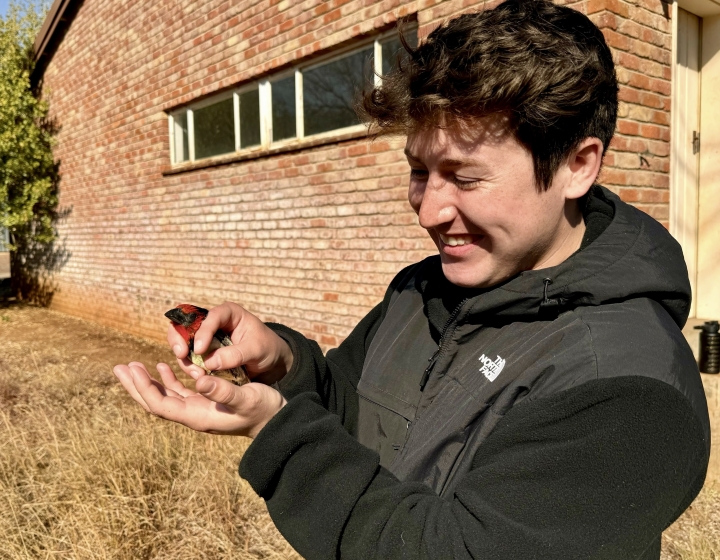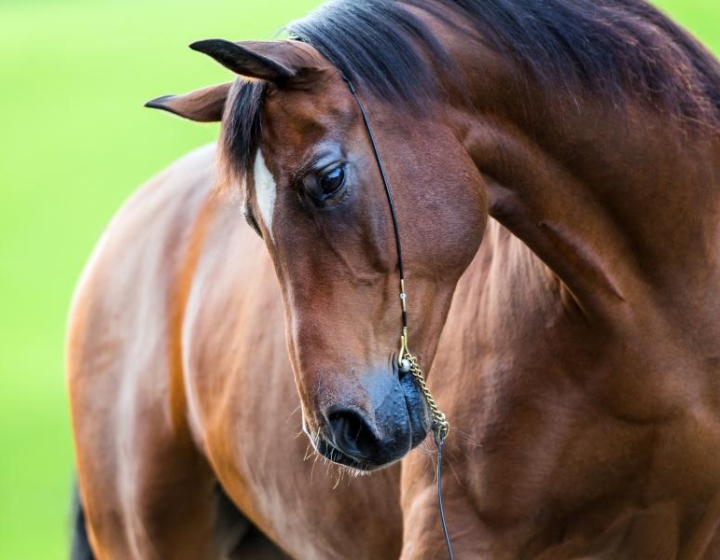Dad's genes build placentas, study shows
 Something only fetuses and mothers share grows according to blueprints from dad, says new Cornell research. Published in PNAS in May 2013, the study shows that paternal genes dominate in the placenta, a temporary organ integrating mother and embryo until birth. This basic biology revelation could help breed better animals and explain crippling developmental diseases.
Something only fetuses and mothers share grows according to blueprints from dad, says new Cornell research. Published in PNAS in May 2013, the study shows that paternal genes dominate in the placenta, a temporary organ integrating mother and embryo until birth. This basic biology revelation could help breed better animals and explain crippling developmental diseases.
Genes work in pairs: one from mom, one from dad. But about one percent of mammalian genes choose sides, a phenomenon called imprinting. Imprinted genes use epigenetic tags, chemicals that bind to DNA, to quiet one half and let the other lead. The mother’s side of the placenta has only her genes. But in the embryo’s side Cornell scientists discovered most genes are paternally imprinted.
“This discovery explains what breeders call the paternal grandsire effect,” said Dr. Douglas Antczak, equine geneticist at Cornell’s College of Veterinary Medicine, whose lab partnered with Cornell genetics professor Dr. Andrew Clark’s to conduct the study. “Some genes, like so-called speed genes in great racehorses, skip a generation and only express in grandchildren if their carrier was a certain sex. We’ve uncovered a list of imprinting genes that could be linked to racehorse traits and help breeders’ decision-making.”
Mistakes in imprinting genes can impair development, spurring genetic problems that can cause gigantism, dwarfism, neurological failures, incomplete sexual development, and others. Uncovering and understanding imprinting genes could shine light on what causes some of these diseases.
It also explains observations in a human pregnancy problem that causes an embryo’s failure and can endanger the mother. When two sperm fertilize an egg, they produce a trophoblastic molar pregnancy, forming two sets of chromosomes where there should be one. Such embryos fail, developing only placental tissue and no embryonic tissue, but can linger in the uterus and cause cancer.
“In the products of these pregnancies, every piece of DNA is the father’s,” said lead author Dr. Xu Wang, researcher in the Clark lab. “Mouse experiments showed that if all DNA comes from the mother, only the embryo grows, suggesting some degree of sex-based division of labor between programming the placenta and the embryo. Our results confirm what these past findings hinted at.”
 To test those hints, Antczak crossed horses and donkeys to make mules (with horse mothers) and hinnies (with horse fathers) that are similar enough to breed but different enough to tell which parent gave which gene. These equine hybrids are known for strength and longevity and have contributed to basic biology discoveries including those demonstrating maternal inheritance of mitochondrial DNA.
To test those hints, Antczak crossed horses and donkeys to make mules (with horse mothers) and hinnies (with horse fathers) that are similar enough to breed but different enough to tell which parent gave which gene. These equine hybrids are known for strength and longevity and have contributed to basic biology discoveries including those demonstrating maternal inheritance of mitochondrial DNA.
Clark and Wang sequenced two sets of the resulting embryos’ genes: one from the placenta, one from the embryo. They found 15 imprinted genes in an ancient part of the equine genome. In those sampled from the placenta, ten only expressed the father’s copy. Another 78 partially imprinted genes favored the paternal copy. But in the same genes sampled from separate embryonic tissue, the 78 showed no bias, and most of the placenta’s partisan 10 expressed some of both sides.
“This shows that the extent to which some genes imprint can depend on what tissue they come from,” said Antczak. “It also highlights the central role the placenta plays in the evolution of imprinting.”




